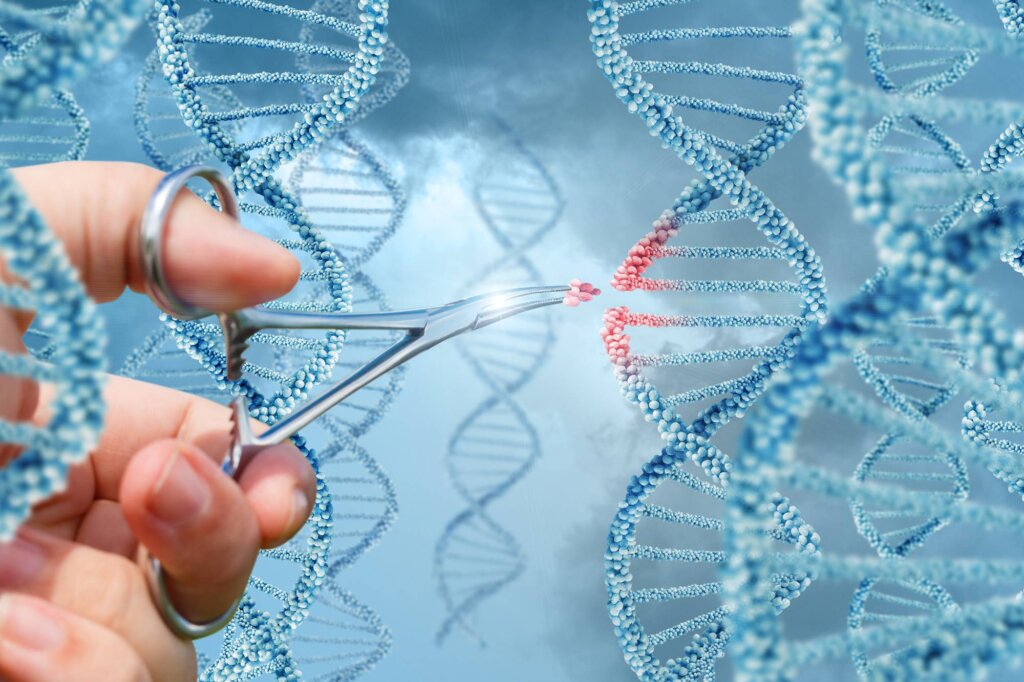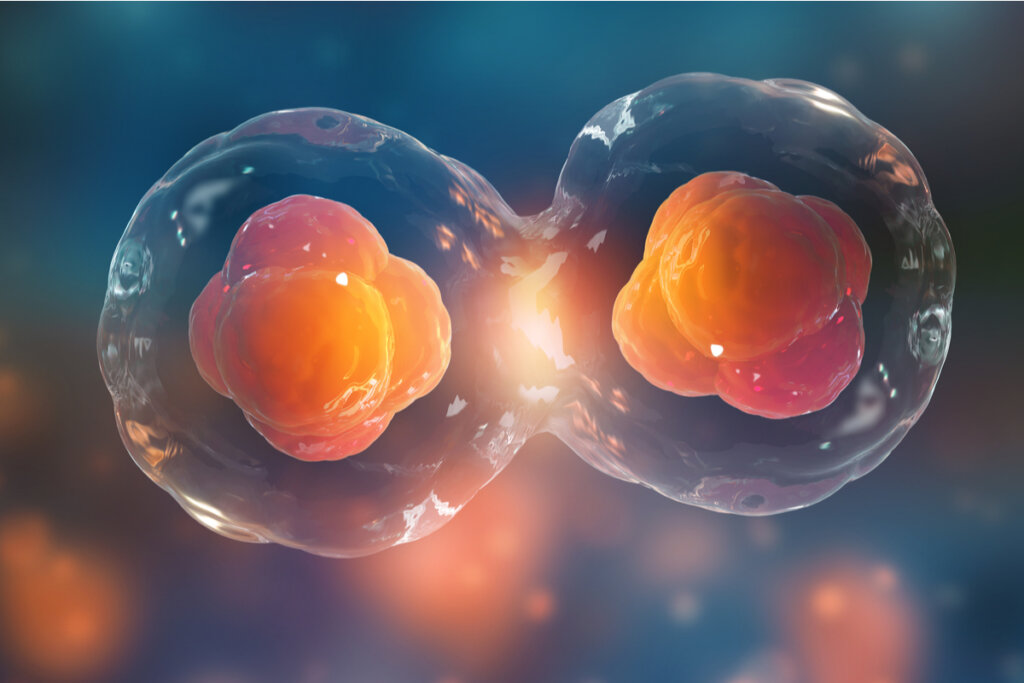Human Cloning Seen from a Psychological Point of View


Written and verified by the psychologist Valeria Sabater
Ben Lamm, founder of the first species “de-extinction” company, recently announced that the first woolly mammoths could be seen by 2028. Biotechnology and the science of gene editing are advancing overwhelmingly. This leads to an interesting question: What opinion does psychology have regarding human cloning?
There’s a common perception among the medical and psychological community that, at some point, human clones will become a reality. From a bioethical point of view, it’s not recommended, as the social and emotional implications will be immense.
Now, what arguments are used to convince scientists not to encourage such engineering? Moreover, what effects would it have on society if human cloning happens? Find out more about this information below.
Psychology admits and approves gene therapy for medical purposes such as organ transplantation, nerve cell, and tissue healing. But human cloning has other, more problematic implications.
Human cloning seen from a psychological point of view
The journal Reproductive Biomedicine Online highlights in a paper that the issue of human cloning has been the cause of a controversial debate for decades. In this regard, both psychology and other social sciences should be the guiding support capable of dissuading progress or providing the backbone for its regulation if it’s carried out.
The reality is that although a large part of society welcomes gene editing to treat diseases, delving into human replication is treated as something aberrant. The cloning of Dolly the sheep in 1997 was seen as a metaphor: The wolf in sheep’s clothing and the strong possibility that this technology could materialize in humans.
Such was the impact that, months later, the Council of Europe approved a rule that prohibited this possibility. Later, the United Nations General Assembly called for the same, alleging that therapeutic cloning irrevocably violates human dignity. However, countries like the United Kingdom already gene-edit human embryos, a 2017 study in the journal Nature reveals.
The technology is here, so it’s clear that, at some point, cloning will happen. So, what’s the opinion of psychology in regard to the subject?

Cloning has serious considerations
Psychology is in tune with the perspectives of one of the greatest experts in genetics and cloning: Dr. Francisco J. Ayala. In his book Cloning Humans? and in research such as that published in PNAS in 2015, he emphasizes the same idea. Genes can be cloned for medical purposes, but never people.
Opening the door to human cloning would give shape to the most utopian and unethical future scenarios. For example, “copies” could be made of individuals with very specific characteristics: Great talent, intelligence, or beauty. Likewise, it would be possible to produce children of a specific genotype. What else would such a breakthrough bring?
- It would modify the concept of genetic biodiversity.
- The possibility of cloning deceased loved ones would arise.
- Human replication would be an evident form of eugenics.
- As with animal cloning, there would be frequent failures and malformations.
- The origin of many people is no longer due to biological causation but to the design carried out in a laboratory.
- Human cloning would no longer respect the most valuable thing in all of us: Our uniqueness.
- All kinship relationships would be altered, as there would only be a single parent (the figure from which the clone is replicated).
Psychology recommends that reproductive cloning remain prohibited. The ethical, social, psychological, and moral implications would be immense. However, if, at some point, this possibility opens up, it should be regulated very rigorously.
The current scientific consensus is that human cloning is unethical. In fact, many animal clones have severe malformations, don’t survive, or display serious diseases.
The possible psychological consequences of legalizing human cloning
Human cloning is currently not legal, but somewhere, there’s someone who’ll step up and stand as the pioneer who changes things in this field. Psychology knows that, no matter how aberrational it may seem now, reproductive cloning will happen sooner or later.
Let’s place ourselves, therefore, in this hypothetical situation: What effect would this have on society? And what effects would this have on the cloned person? We’ll analyze this below.
- Cloned people would suffer social rejection and discrimination.
- Being a clone would frequently imply suffering deep existential crises.
- The expectations and demands of the parents or donors of genotypes would highly condition the clones.
- The environment would always compare the cloned figure’s achievements with the original person’s.
- Deep psychic charges would appear, both in the donor figure and in that of the cloned person. Would they be children and parents? Twins perhaps?
- Children generated by reproductive cloning would suffer problems in the formation of their identity and psychosocial development (Annas, 1998; Gonnella and Hojat, 2001).
- The clones would have difficulty accepting their origin and understanding who their family or parents are. From a genetic point of view, there would only be one parent, that is, the clone’s monozygotic twin.
- Same genes, different ways of being. In 2013, Dr. Michael Zuck appeared, wanting to clone John Lennon. Now, something he didn’t know was that the clone would have the same DNA but none of the same life experiences that formed John Lennon’s personality. He would not be the artist who longed to come back to life. In the future, there could be clones created on purpose to replace someone who died; in these cases, neither the identity nor the personality would be the same.

Banning cloning safeguards human dignity
Psychology points out very grotesque aspects that would derive from human cloning. An example of this would be those parents who yearn to have an exact substitute for a deceased child or those who try to replicate figures of great talent or beauty in an attempt to create a society with eugenic overtones. In the absence of a firm bioethical regulation in this field, we’d be creating Frankenstein.
At present, if cloning isn’t legalized, it’s because advances in the field of animal replication are still deficient. Malformations, illnesses, and premature deaths are frequent. However, by the time strong and healthy individuals develop, a new biological and social revolution may begin.
Psychology insists that the step not be taken, as cloning is an attack on human dignity. Already “enslaved” by technology, it would be an attempt to control what shouldn’t be under our control. Erasing uniqueness to create a copy of another person is an attack against identity and individuality.
All cited sources were thoroughly reviewed by our team to ensure their quality, reliability, currency, and validity. The bibliography of this article was considered reliable and of academic or scientific accuracy.
- Annas G. J. (1998). Why we should ban human cloning. The New England journal of medicine, 339(2), 122–125. https://pubmed.ncbi.nlm.nih.gov/9669897/
- Ayala, F. J. (2015). Cloning humans? Biological, ethical, and social considerations. Proceedings of the National Academy of Sciences of the United States of America, 112(29), 8879-8886. https://www.pnas.org/doi/10.1073/pnas.1501798112
- Charatan F. (2004). Merchants of Immortality: Chasing the Dream of Human Life Extension. BMJ: British Medical Journal, 328(7441), 715. https://www.ncbi.nlm.nih.gov/pmc/articles/PMC381279/
- Cheshire, W. P., Jr, Pellegrino, E. D., Bevington, L. K., Mitchell, C. B., Jones, N. L., FitzGerald, K. T., Koop, C. E., & Kilner, J. F. (2003). Stem cell research: why medicine should reject human cloning. Mayo Clinic proceedings, 78(8), 1010–1018. https://pubmed.ncbi.nlm.nih.gov/12911049/
- Gonnella, J. S., & Hojat, M. (2001). Biotechnology and ethics in medical education of the new millennium: Physician roles and responsibilities. Medical Teacher, 23(4), 371–377. https://www.tandfonline.com/doi/abs/10.1080/01421590120042982
- Ma, H., Marti-Gutierrez, N., Park, S. W., Wu, J., Lee, Y., Suzuki, K., Koski, A., Ji, D., Hayama, T., Ahmed, R., Darby, H., Van Dyken, C., Li, Y., Kang, E., Park, A. R., Kim, D., Kim, S. T., Gong, J., Gu, Y., Xu, X., … Mitalipov, S. (2017). Correction of a pathogenic gene mutation in human embryos. Nature, 548(7668), 413–419. https://www.nature.com/articles/nature23305
- Morales, N. M. (2009). Psychological aspects of human cloning and genetic manipulation: the identity and uniqueness of human beings. Reproductive Biomedicine Online, 19, 43-50. https://www.rbmojournal.com/article/S1472-6483(10)60276-3/fulltext
- Wilmut I. (2004). Human cells from cloned embryos in research and therapy. BMJ (Clinical research ed.), 328(7437), 415–416. https://www.ncbi.nlm.nih.gov/pmc/articles/PMC344246/
This text is provided for informational purposes only and does not replace consultation with a professional. If in doubt, consult your specialist.








